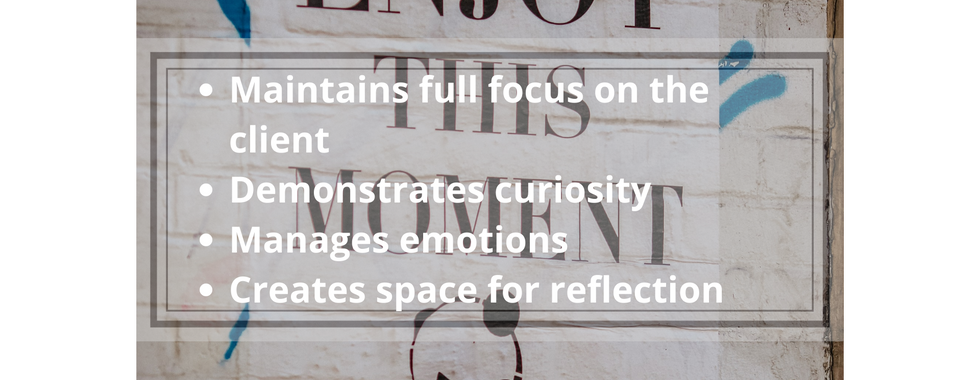Core ICF Competencies Update
- Miroslav Czadek

- Jul 7, 2021
- 6 min read
Updated: Nov 13, 2025
UPDATED 13-NOV 2025
Updated ICF Core Competence model includes new elements and themes that emerged from the large scaled research and have been integrated into this model. These include a paramount emphasis on ethical behavior and confidentiality, the importance of a coaching mindset and ongoing reflective practice, the critical distinctions between various levels of coaching agreements, the criticality of partnership between coach and client, and the importance of cultural, systemic and contextual awareness. These foundational components, combined with emerging themes, reflect the key elements of current coaching practice.
In Progress - Will be updated
Updated coaching core competencies
13-Nov-25: ICF Core Competencies 2025 Updates
27-May-25: Updated ICF Code of Ethics
Updated Coaching Core Competencies
More Streamlined
More Consistent Language
Enhanced Some of the Concepts
Improved Cohesion
More Succinct (1,537 Words ➔ 1,109 Words)


Overview: Updated Core Competencies
NEW VIDEO Series: Updated ICF Core Competencies 2025 !
VIDEO Series: Updated ICF Core Competencies 2021
Detail Information of ICF Competence vs. ICF PCC Marker
A Powerful ICF Core Competency: Embodies a Coaching Mindset
You can find an extension of this competence written by Mukul Dhawan on 18-May, 2021 on ICF Blog. A Powerful ICF Core Competency: Embodies a Coaching Mindset
An excerpt from the blog that interested me describes the extension of this competence in areas that give me a better understanding of the competence:
ICF has outlined the definition and components of this new competency. To look at it another way, Mukul Dhawan grouped its description into three categories: self-awareness, self-development and self-regulation.
1. Self-awareness
As coaches, be aware of your distinct role. You partner with clients to facilitate their growth. Be playful and explore nuances so you can adapt your coaching style to enable client autonomy.
While it is difficult to quantify impact of culture and context on coaching, be aware of how your own background may have influenced who you are as an individual. Assess with which client’s culture and context may come up, what can lead to an internal debate and assess if you are comfortable with it.
Allow your self-awareness and intuition to play a role in the coaching process to benefit clients. Think about how you recognize and interpret your own intuition and if/how you decide to offer it to the client.
2. Self-Development
Identify opportunities to develop as a coach so that you are fit for purpose and fit for future. To support this, be aware of your own learning style and make learning ongoing.
Create dedicated time to reflect on how the coaching session went for you, how it went for the client and how it went from a competency point of view. Supervision can prove especially useful to develop a reflective practice – among other resources ICF has recently launched is a new Community of Practice – Coaching Supervision.
Honor coaching ethics by directing clients to other professional services when required. Be equally aware of your own support system as a coach and know your go-to professionals to seek help when needed.
3. Self-regulation
Explore areas that can be emotional for you and be aware of how you manage and regulate those emotions. How do you manage emotions when necessary and still be authentic in the coaching space?
Prepare for sessions, mentally and emotionally. Be aware of the rhythm that works for you to be in a state of mental calm before the session begins.
In summary, the “Embodies a Coaching Mindset” competency is an invitation for coaches to be truly open to ongoing learning and development, to stay curious and develop a reflective practice and to move with the client while being flexible about the influence of their own emotions, culture and intuition.
“Being” the coach shows up in “doing” the coaching. Make them both integral parts of your practice to deliver success for you and growth for clients!
Thanks for that, I fully agree with this, projecoach.
Reflection Sub-Competence
One presentation on Covnerge21 dealt more deeply with Reflection Competence, but apparently still referred to the old competence model. In the new competition model, reflection can be assigned to the area of active listening. In Converge21: "ICF Core Competencies and Reflection Competence” it was mentioned that: Intense thinking is not reflection and that it is important to balance between too much reflection and too little reflection. For me, the presentation had several valuable moments, but for this part of the blog I will only mention the mentioned difference between analysis and reflection, which was compared.
Analysis | Reflection |
Active thinking process | Passive process of feeling |
Numbers, facts, events | Impressions, feelings, moods |
Deduce, draw conclusions | Perceive, approximate, capture |
Intellectual and factual access to the world | Intuitive, feeling-related access to the world |
Measurable and visible aspects of the world | Intangible and invisible aspects |
Process of analysis: fast and extensive | Process of reflection: slowed down and pervasive |
Bird’s eye view | Deep sea diving |
Source Converge21: ICF Core Competencies and Reflection Competence by Crhistine Kranz
As mentioned in abstract of presentation by Mrs. Kranz, The ICF Core Competencies are more than a guideline, they show steps of analysis and reflection that enable a brilliant coaching process. In western socialization, we learn to trust analysis and devalue reflective approaches. This makes it even more difficult to achieve meaningful self-reflection and insights with clients that can bring real and transforming changes in behavior patterns.
Added 27-May-25: Updated ICF Code of Ethics 2025 – Focus Highlights Based on Projecoach Review
(Effective October 2024)
This summary presents key highlights from the 2025 ICF Code of Ethics, selected and organized through the lens of Projecoach’s practical coaching standards. It serves as a focused ethical guide for professionals operating within the ICF ecosystem, emphasizing real-world integrity, clarity, and alignment with evolving coaching expectations.
Applicability
This Code applies to all roles within the ICF ecosystem, including:
Professional coaches
Mentor coaches
Coach supervisors
Trainers and student coaches
ICF staff, volunteers, and board members
It governs all professional interactions in which individuals represent themselves as ICF professionals or act within the ICF system.
ICF Core Values and Ethical Principles
The foundation of ethical coaching is built on four core ICF values that are equally important and aspirational:
Professionalism: Upholding integrity, competence, and accountability through a lifelong commitment to development.
Collaboration: Fostering trust, mutual respect, and shared creativity across diverse partnerships.
Humanity: Demonstrating humility, openness, compassion, and a commitment to authentic relationships.
Equity: Promoting inclusion, fairness, and awareness of systemic biases in all coaching interactions.
These values shape ethical decisions and promote a coaching mindset centered on growth and dignity.
Section 4: Ethical Standards for ICF Professionals
Projecoach Highlights – 5 Key Focus Areas per Category
1. Agreements for Client and/or Sponsor Engagement
Define the coaching relationship, scope, and expectations from the start.
Establish a clear agreement covering roles, responsibilities, and terms.
Allow the client or sponsor to end the relationship at any time.
Uphold and revisit agreements to ensure alignment.
Disclose any benefits received from referrals transparently.
2. Confidentiality and Legal Compliance
Maintain strict confidentiality with all parties and roles.
Specify what information may be shared and how.
Clarify limits to confidentiality (e.g., legal requirements or safety concerns).
Protect client data and communication according to laws and ethics.
Ensure all tech platforms and support staff adhere to confidentiality standards.
3. Professional Conduct and Conflicts of Interest
Discuss and manage potential conflicts of interest early.
Resolve conflicts transparently or suspend the coaching relationship if needed.
Set and maintain appropriate, culturally aware boundaries.
Identify and address personal biases; avoid discrimination.
Avoid romantic or sexual relationships with clients or sponsors.
4. Commitment to Delivering Consistent Value
Be mindful of status or power imbalances in the coaching relationship.
Acknowledge limitations that may affect coaching performance and seek help.
Evaluate the coaching value and raise concerns with the client when needed.
Recommend alternative support when outside expertise is needed.
Use reflective supervision or mentoring when facing ethical uncertainty.
5. Professional Integrity and Accountability
Represent your qualifications and credentials truthfully.
Make accurate statements about your services and the value of coaching.
Operate within the scope of your training, experience, and credential.
Embrace a “do good” mindset that prioritizes ethical contribution.
Accept accountability through the ICF’s Ethical Conduct Review (ECR) process, which may involve further training or credential removal in cases of violation.
Ongoing Ethical Development & DEIB Integration
ICF mandates continuous ethics education as a requirement for credential renewal and coaching program accreditation.
The Code integrates Diversity, Equity, Inclusion, and Belonging (DEIB) principles, encouraging coaches to be inclusive, challenge systemic bias, and respect diverse identities in all professional relationships.
Pledge of Ethics
“While fulfilling any role within the ICF ecosystem, I promise to uphold my ethical obligations by adhering to the ICF Code of Ethics in all my professional interactions. I commit to doing my best to represent the integrity and professional reputation of coaching and the ICF.”


















Comments